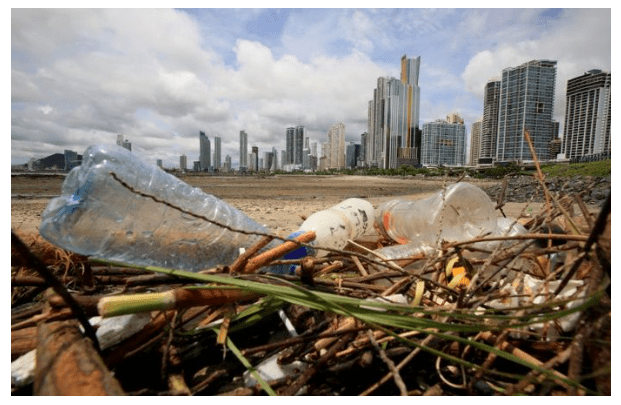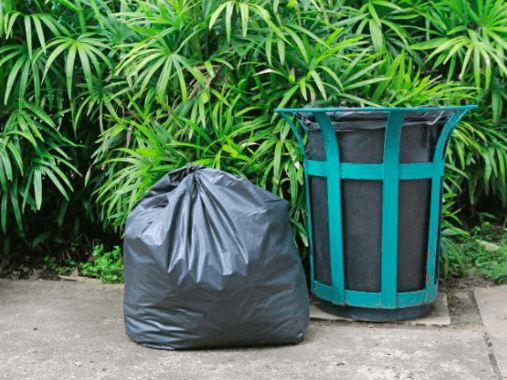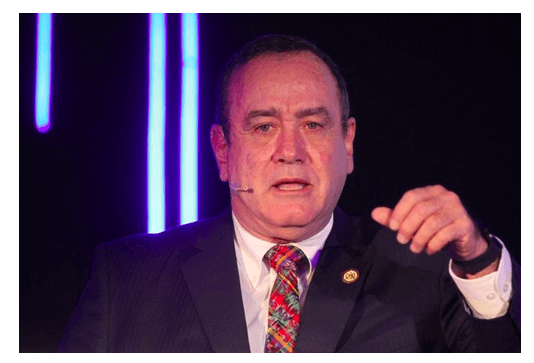Sourced from El Economista
23 February 2022
Translated by Pamela Machado for The Violence of Development website. Pamela Machado is a Brazilian journalist working in Brazil, Portugal and the UK.
Keywords: Central America; plastics; plastic contamination
Central American countries have been among “the first ones” to make decisions to fight plastic pollution, said an environmentalist from MarViva, an organisation created in 2002 operating in Panama, Costa Rica and Colombia.
Central America has been among the first regions to adopt measures to combat plastic contamination but, much like the rest of the world, more legislation and coordination is needed to face this global problem, an expert from Fundación MarViva told Efe, the Spanish international news agency.
MarViva’s regional coordinator for sea pollution, Alberto Quesada, said Central America has the “particularity” of being one of the few regions in the world where most countries have two coasts (Atlantic and Pacific), which means that “the impact” of plastic pollution “hits both sides”.
“Our plastic footprint, even though it is considerable, does not compare” to the one from the developed world, “but the contamination impact on our coasts is tremendous. In any current study about Central American coasts, about waste on the beach, about fisheries, we will find plastic pollution,” he said.
A recent report from the World Wide Fund for Nature (WWF) warned that plastic pollution has reached “all corners of the oceans”, and that 88% of marine species have been affected by it, including those consumed by humans.
The actions
Central American countries have been among “the first ones” to make decisions to fight plastic pollution, said the environmentalist from MarViva, an organisation created in 2002 operating in Panama, Costa Rica and Colombia.
He gives the example of Panama, which has “a couple of very modern laws, especially the most recently approved which mandates the gradual replacement of single-use plastic for more sustainable alternatives”.
In the case of Costa Rica, Quesada said, some laws have also been approved, while other Central American countries have fewer policies and municipal ordinances that allow the problem to be addressed.
“We have been doing well, but in general, we need more regulation and more coordination. I can attest that there have been advancements in both ways in the region,” said Quesada.
Thus, Central America is in line with the action plan on sea waste for the Northeast Pacific, which also includes Mexico and Colombia.
“This is a 5-year plan that counts with actions to combat sea waste, and where the theme of plastic waste is one of the priorities,” said the MarViva expert, organisation that contributed to coordinating the initiative.
In terms of laws, Central America needs “better quality regulation” and “an integral, life-cycle approach”, because the “problem of plastic pollution does not start when we have the residues in our hands but instead it is embedded within what we produce, distribute, and consume.”
“This brings us to a much larger discussion, and one that is much more current, that is the urgency of a new international treaty on plastic pollution,” he said.
The handling of plastic waste will be one of the main themes in the general meeting of the fifth session of the UN Environmental Assembly (UNEA 5) which will start on 28 February in Nairobi.
MarViva’s expectation is that in the UNEA 5, countries “issue a resolution supported by the proposal promoted by Peru and Rwanda, which calls for the formation of an Intergovernmental Negotiation Committee that will have a mandate to negotiate during two years a new international treaty on pollution by plastics (…) whether it is going to be a voluntary or a binding agreement, and this is under discussion,” says Quesada.
MarViva Foundation: https://www.amigosofcostarica.org/affiliates/fundacion-marviva


